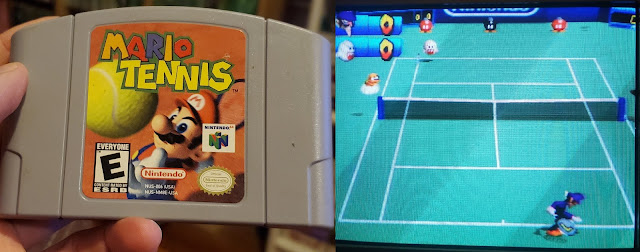Collection essentials #439 & #440: The Legend of Zelda: Oracle of Seasons (GBC) and The Legend of Zelda: Oracle of Ages (GBC)
Any release of a brand new Zelda game is quite an event. So imagine how exciting it is for two to release at the same time!! These two games came out in 2001 and serve as brother-sister titles. Perhaps such an arrangement seemed attractive after the success of Pokémon and their tradition of releasing multiple versions of their games. But unlike Pokémon, these two Zelda games are completely distinct from each other. And what’s really cool is that they are meant to be linked together, either via passwords or with a link cable. The main idea is, once you complete one of the games, you use that data to start your playthrough of the other game. And this allows for new content (including a new final boss and ending) as well as changing up various events in the story. Beating Oracle of Season first will turn Oracle of Ages into a sequel, and the events of the previous game will be mentioned as having happened in the past. But the reverse is true if you beat Oracle of Ages first! It’s a neat thing that not many games in history have done.
An odd thing about these games is that they actually weren’t made by Nintendo. Rather, it was made by Flagship, a company led by the legendary developer Capcom. Nintendo hasn’t done this very often with standard Zelda games, and I believe there was only one such instance after this.
Previous Zelda games establish the existence of three goddesses who created the world of Hyrule and sustain it. The stories of these games each involve someone evil capturing one of the goddesses in some way. In Oracle of Seasons, the goddess being captured leads to the disruption of the seasons, while in Ages the theme is time travel. In the former Link gains the ability to switch between the four seasons to manipulate the world to his needs, while in the other he can travel back and forth through time (similar to in Ocarina of Time) to try and stop the game’s villain from altering the past.
These games will immediately feel familiar to those who have played Link’s Awakening, as these games use a lot of the same basics, including graphics, controls and mechanics. But they really don’t feel like ripoffs, as the new gameplay mechanics are more than enough to make these games stand out as their own thing.
I got both of these games as a teenager, and I believe I bought them pre-owned from Electronics Boutique in the Holyoke Mall in Holyoke, Massachusetts. I’m pretty sure the cartridges shown are my originals, with the boxes and inserts coming much later. They wound up being games I kinda played “on and off” for a while. I jumped back and forth between them, and I put both of them down after getting through a few dungeons each. I think it wasn’t very long before I beat Oracle of Seasons, but for some reason I didn’t come back to Oracle of Ages for years. I wound up finishing it in my early 20s. I remember them being very good, though there were certain things I found annoyingly obtuse (though that could have been a “me” problem) and some segments of the game that were a little annoying. I came away not liking them quite as much as Link’s Awakening, but there’s no shame in not being as good as that classic.
These two are high on the list of games I ought to replay. I’m a lot better at solving video game puzzles now and I would probably have a bit of a better experience because of that. Plus, the way I played them sort of “on and off” is not an ideal way to experience Zelda games anyway. But the biggest reason why I need to replay them is…I was an idiot and didn’t do the “linked game” features at all!! That means I’ve never fought the true final boss and gotten the true ending, which is a travesty on my part. A wrong that I intend to right one of these days.
I don’t think there are many who would consider Oracle of Seasons and Ages to be their very favorite Zelda games, but that’s more due to how great the rest of the series is. These games are still quite good and stand out enough to be worth playing. They’re among the best of what Game Boy Color has to offer, and they’re easy picks for my essentials list.




Comments
Post a Comment